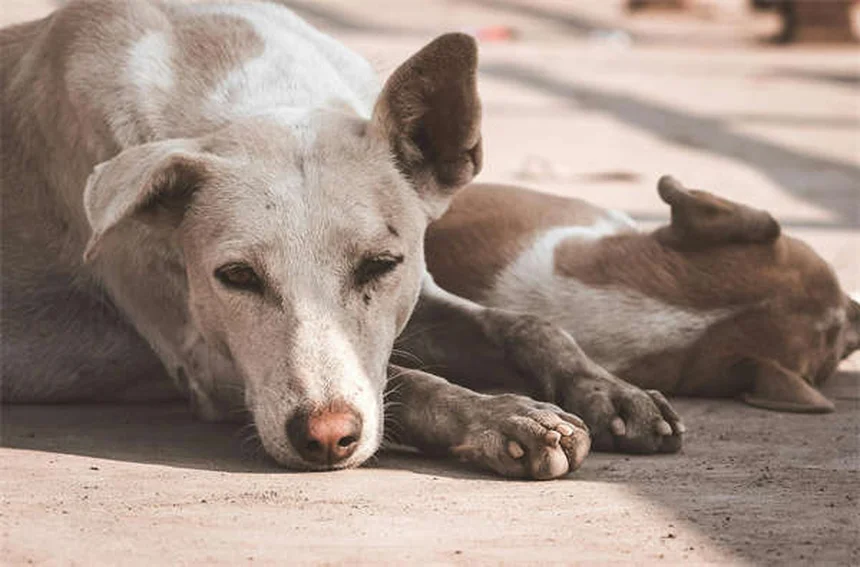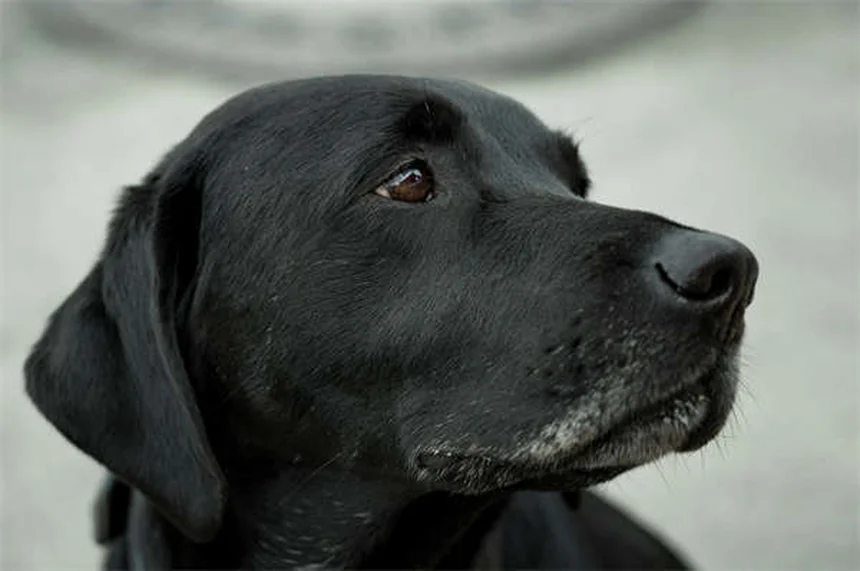Can guinea pigs get salmonella? The answer is yes - and it's more serious than you might think. Salmonella in guinea pigs isn't just dangerous for your furry friend; it can spread to humans too. I've seen too many cases where owners didn't realize how easily this bacteria can move between species. The good news? With proper care, you can significantly reduce the risks for both your pet and your family.Here's what you need to know right away: if your guinea pig shows symptoms like loss of appetite, weight loss, or a dull coat, it could be salmonella. But here's the tricky part - sometimes they carry the bacteria without showing symptoms at all! That's why prevention is absolutely crucial. We'll walk you through exactly how to protect your guinea pig (and yourself) from this sneaky bacterial threat.
E.g. :Metritis in Chinchillas: 5 Warning Signs Every Owner Must Know
Let me break this down for you - salmonellosis is that unwanted bacterial party that sometimes crashes your guinea pig's system. While it's not super common, when it happens, it's usually because your furry friend ate something contaminated with salmonella bacteria. Think of it like when you eat that questionable street taco and regret it later - except for guinea pigs, the consequences can be much more serious.
Here's something wild - did you know an infected guinea pig can spread salmonella even when it looks perfectly healthy? That's right! And get this - it's not just other guinea pigs at risk. We humans can catch it too through direct contact. So if your piggie gets infected, you'll need to be extra careful with hygiene.
The main culprits are:
Imagine this scenario: You buy some fresh kale from the store, give it a quick rinse (but not thorough enough), and feed it to your guinea pig. That could be all it takes if the kale had salmonella on it. That's why proper food prep is so crucial!
 Photos provided by pixabay
Photos provided by pixabay
Your guinea pig won't be able to tell you it's feeling sick, so you'll need to be a detective. Here are the red flags:
| Common Symptoms | Severity Indicators |
|---|---|
| Loss of appetite | High fever |
| Weight loss | Severe dehydration |
| Dull coat | Swollen lymph nodes |
Ever seen your normally energetic guinea pig just mope around? That depressed appearance could be the first clue something's wrong. And if they're turning their nose up at their favorite veggies - that's a major warning sign you shouldn't ignore.
Guinea pigs with salmonella often show personality changes. Your normally social piggie might suddenly become withdrawn or irritable. They might sleep more than usual or seem less interested in playtime. These subtle changes can appear before physical symptoms, so always trust your gut if something seems "off" with your pet.
When you take your guinea pig to the vet, they'll want to know everything - what they've been eating, any changes in behavior, when symptoms started. Be prepared to give the full story, even details that might seem unimportant. That time your guinea pig sneezed three days ago? Yeah, mention that too.
The vet will likely run some tests:
 Photos provided by pixabay
Photos provided by pixabay
Here's a question: Why go through all these tests when the symptoms seem obvious? Well, many illnesses can mimic salmonella symptoms. Proper testing ensures your guinea pig gets the right treatment and helps prevent unnecessary antibiotic use that could do more harm than good.
Unlike some infections where antibiotics work wonders, salmonella in guinea pigs often requires a different approach. The focus is on supporting their body while their immune system fights the infection. This might include:
In severe cases, your vet might prescribe antibiotics, but they'll be cautious about this. Guinea pigs have sensitive digestive systems, and antibiotics can sometimes cause more problems than they solve.
Recovering from salmonella is like running a marathon for your guinea pig - it takes time and patience. You'll need to:
And remember - even after they seem better, they might still be contagious for a while. So keep up those hygiene practices!
 Photos provided by pixabay
Photos provided by pixabay
Let's talk about veggies - the potential hidden danger in your guinea pig's diet. Here's how to make them safe:
Did you know that organic vegetables can carry just as much risk as conventional ones when it comes to bacteria? That's why proper washing is crucial regardless of how the veggies were grown.
A clean cage is your first line of defense. Here's my recommended cleaning schedule:
| Task | Frequency |
|---|---|
| Spot clean (remove visible waste) | Daily |
| Full bedding change | Weekly |
| Complete cage disinfection | Monthly |
When disinfecting, use a pet-safe cleaner and make sure to rinse thoroughly. And here's a pro tip - rotate between different disinfectants occasionally to prevent bacteria from developing resistance.
If you have multiple guinea pigs and one gets sick, you'll need to play bouncer and keep them separated. Set up a completely separate living space with its own food bowls, water bottles, and toys. No sharing allowed until your vet gives the all-clear!
And when handling your sick piggie? Gloves aren't just for doctors. Wear disposable gloves when interacting with them, and always wash your hands thoroughly afterward. Change clothes before handling other pets too - salmonella can hitch a ride on fabric.
A guinea pig recovering from salmonella might need some dietary TLC. Your vet might recommend:
Here's something important - don't make sudden diet changes without consulting your vet. Guinea pigs have delicate digestive systems, and abrupt changes can do more harm than good.
Some situations require immediate veterinary attention. If your guinea pig shows any of these, don't wait:
Remember - guinea pigs are prey animals by nature, so they often hide illness until it's advanced. By the time they show obvious symptoms, they're usually pretty sick. That's why early intervention is so important.
During recovery, keep a daily log of:
This information will help your vet adjust treatment as needed. Plus, seeing progress in writing can be really encouraging during what might be a stressful time.
Here's a question that might surprise you: Could cleaning your guinea pig's cage make you sick? The answer is yes, if proper precautions aren't taken. Salmonella can spread from pets to people, especially:
But don't panic! Simple precautions make the risk minimal. Always wash hands after handling your guinea pig or cleaning their cage. Consider wearing gloves during cage cleanings, and never let your guinea pig roam on kitchen counters or food prep areas.
If you have children, teach them these important rules:
Make it fun by creating a "guinea pig rules" poster together. Use stickers or drawings to help them remember. After all, keeping everyone healthy means more happy years with your furry friend!
You might not realize this, but salmonella can actually survive for months in the right environment. That means if your guinea pig had an infection last season, the bacteria could still be lurking in cage crevices or bedding if you didn't disinfect properly. It's like that one guest who never leaves the party - except this one could make your pet seriously ill.
Here's something fascinating - guinea pigs have a unique digestive system that makes them particularly vulnerable to salmonella complications. Unlike humans who might just get an upset stomach, guinea pigs can develop severe systemic infections because their gut bacteria balance is so delicate. That's why prevention is absolutely crucial!
Did you know the season can affect your guinea pig's salmonella risk? Summer months see higher cases because:
I once met a guinea pig owner who only had problems during July and August - turns out they were buying produce from an outdoor market where flies landed on the vegetables. After switching to a different vendor and washing veggies more thoroughly, the issues stopped completely!
Here's a game-changer many owners don't know about - probiotics can help strengthen your guinea pig's natural defenses against salmonella. These beneficial bacteria create an environment where harmful bacteria struggle to take hold. You can find guinea pig-specific probiotics at most pet stores, or ask your vet for recommendations.
But wait - isn't this putting good bacteria against bad bacteria? Exactly! It's like having a security team in your guinea pig's gut. Just remember to introduce probiotics gradually and follow dosage instructions carefully.
Let me ask you this - when was the last time you deep cleaned your guinea pig's water bottle? Most owners focus on food but forget that water containers can be bacterial breeding grounds. Those little ball bearings in sipper bottles? They're perfect for trapping bacteria.
Here's my foolproof cleaning method:
Do this weekly, and you'll dramatically reduce salmonella risks from water sources. Your guinea pig will thank you with happy squeaks!
Nobody talks about how stressful it is when your guinea pig gets sick. You might lose sleep worrying, feel guilty ("Did I do something wrong?"), or struggle with the costs of treatment. These feelings are completely normal. I've been there myself when my first guinea pig, Peanut, came down with an infection.
The important thing is to stay calm and focus on getting proper veterinary care. Guinea pigs pick up on our stress, so maintaining a positive attitude actually helps their recovery. And remember - even the most careful owners can face unexpected health issues.
Your sick guinea pig needs more than just medicine - they need the right environment to heal. Set up a recovery cage with:
Keep the temperature steady between 65-75°F - no drafts or direct sunlight. You'd be amazed how much these small adjustments can speed up recovery time!
Let's talk money - because surprise vet bills can hit hard. A salmonella infection might cost anywhere from $200 to $800 to treat, depending on severity. That's why I always recommend setting aside a "pet emergency fund" or considering pet insurance.
| Treatment Aspect | Estimated Cost Range |
|---|---|
| Initial exam | $50-$100 |
| Diagnostic tests | $100-$300 |
| Medications | $30-$150 |
| Follow-up visits | $40-$80 each |
Pro tip: Some vets offer payment plans for major treatments. Don't be afraid to ask about options if cost is a concern - your guinea pig's health is worth it!
Here's the good news - most prevention methods cost practically nothing! Proper hygiene, careful food handling, and regular cage cleaning are all free or low-cost. Investing time in prevention saves money (and heartache) down the road.
My favorite budget-friendly prevention tip? Make your own veggie wash with 1 part vinegar to 3 parts water. It's effective, safe, and costs pennies compared to commercial produce washes. Just remember to rinse thoroughly after!
Ever wonder why wild guinea pigs rarely get salmonella but captive ones sometimes do? In nature, guinea pigs:
This doesn't mean you should set your pet free! But it does show why we need to work extra hard to recreate those natural advantages in captivity. Rotating grazing areas in outdoor enclosures and offering a variety of safe plants can help mimic wild conditions.
Going through a salmonella scare with your guinea pig can actually strengthen your bond. You learn to read subtle signs of discomfort, become more attentive to their needs, and develop a deeper appreciation for their resilience. Many owners report their guinea pigs become more affectionate after recovery.
Just last week, a client told me her previously shy guinea pig now climbs into her lap every evening - something that never happened before their health journey together. Sometimes challenges bring unexpected gifts!
E.g. :Salmonella Toxicity in Guinea Pigs | PetMD
A: Guinea pigs usually pick up salmonella the same way we do - through contaminated food. Those fresh veggies you're feeding? If they're not washed thoroughly, they could be carrying the bacteria. But here's something most people don't realize: wild rodents can spread it too! If mice or rats get into your guinea pig's food or bedding, they can leave behind salmonella. We recommend storing all pet food in sealed containers and washing veggies like you're prepping them for surgery - running water and a good scrub. And don't forget about water bottles! They need regular cleaning too.
A: The earliest red flags are often behavioral changes. Your normally social piggie might suddenly become withdrawn or stop running to greet you at cage time. Physical symptoms usually follow - look for decreased appetite (they might leave their favorite veggies untouched), weight loss, and a rough, dull coat. More severe cases can include fever, dehydration, and swollen lymph nodes. Here's my pro tip: weigh your guinea pig weekly. Sudden weight loss is often the first concrete sign something's wrong, before other symptoms become obvious.
A: Absolutely, and this is why salmonella in guinea pigs needs to be taken seriously. The bacteria can spread through direct contact or by touching contaminated surfaces. Children, elderly family members, and anyone with a weakened immune system are especially at risk. But don't panic - simple precautions make all the difference. Always wash your hands after handling your guinea pig or cleaning their cage. We suggest keeping hand sanitizer near the cage as a reminder. And if your guinea pig is diagnosed with salmonella, wear gloves when handling them until your vet gives the all-clear.
A: Treatment focuses on supportive care since antibiotics can sometimes do more harm than good for guinea pigs. Your vet will likely recommend fluid therapy to prevent dehydration and special recovery foods like Critical Care formula. Here's what many owners don't realize: recovery takes time and patience. Your guinea pig will need a quiet, stress-free environment and careful monitoring of their food intake. Weigh them daily to track progress. Even after they seem better, continue isolation for a while - they can still shed bacteria when they appear healthy.
A: Prevention comes down to two main things: food safety and cage hygiene. Wash all vegetables thoroughly - we mean really scrub them under running water. Consider using a vegetable brush and even a vinegar rinse for extra protection. For cage cleaning, spot clean daily and do a full bedding change weekly. Here's a game-changing tip: rotate between different pet-safe disinfectants monthly to prevent bacteria from developing resistance. And never let your guinea pig roam where you prepare food. These simple steps can dramatically reduce the risk of salmonella for both your pet and your family.
Recommended
Metritis in Chinchillas: 5 Warning Signs Every Owner Must Know
Why Do Dogs Eat Grass? 5 Surprising Reasons Explained
5 Essential Blood Tests Your Dog or Cat Needs for Optimal Health
10 Common Cat Fears & How to Calm Your Anxious Kitty
Mast Cell Tumors in Ferrets: Symptoms, Treatment & Care Tips